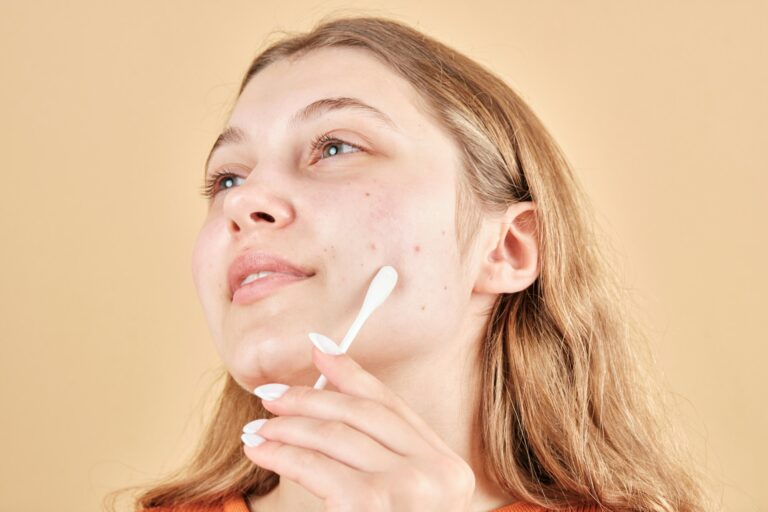September 3, 2024
Your skin is your body’s largest organ, and what you eat can significantly affect its health and appearance. Just like other organs, your skin relies on a variety of nutrients to stay healthy. Good dietary habits can support skin repair, reduce inflammation, and even delay the signs of aging.
On the other hand, certain foods can contribute to skin problems like acne, dryness, or premature aging. For example, high sugar intake can lead to breakouts and wrinkles by promoting glycation, a process that harms collagen in the skin. Dairy products have also been linked to acne and other skin issues due to hormones and bioactive molecules they contain.
Understanding how different foods impact your skin can help you make better dietary choices. Incorporating foods rich in essential vitamins, minerals, antioxidants, and healthy fats can lead to brighter, more resilient skin. Meanwhile, staying hydrated and limiting processed foods can keep your skin looking fresh and youthful. By paying attention to your eating habits, you can achieve healthier skin that looks and feels great.
The Connection Between Nutrition and Skin Health
Your skin reflects your dietary habits. When you consume a balanced diet rich in essential nutrients, your skin benefits from improved texture, elasticity, and overall health. Nutrients like vitamins A, C, and E, along with zinc and selenium, play vital roles in maintaining skin health. A healthy diet supplies your skin with the building blocks it needs to repair itself, produce collagen, and stay hydrated.
Poor nutrition can lead to various skin problems. For instance, a diet lacking essential fatty acids can result in dry, flaky skin. Meanwhile, excessive consumption of sugar and processed foods can accelerate aging and cause acne. By understanding the connection between what you eat and how your skin looks and feels, you can make dietary choices that promote skin health and vitality.
Key Nutrients for Glowing Skin
Certain nutrients are particularly beneficial for your skin, helping it stay healthy and radiant. Here’s a list of key nutrients and their skin benefits:
- Vitamin C: This antioxidant boosts collagen production, reduces wrinkles, and helps heal damaged skin.
- Vitamin E: Protects the skin from oxidative stress and maintains skin moisture.
- Vitamin A: Helps with cell turnover, reducing acne and promoting smooth skin.
- Zinc: Plays a role in reducing inflammation and fighting acne-causing bacteria.
- Selenium: Protects the skin from UV damage and supports overall skin health.
Including fruits like oranges, vegetables such as carrots and spinach, nuts, seeds, and fish in your diet can help you get these essential nutrients. A well-rounded diet rich in these vitamins and minerals will keep your skin glowing.
The Impact of Sugary Foods on Skin Conditions
Sugary foods can negatively affect your skin in several ways. High sugar consumption increases insulin levels, which can trigger hormonal changes that lead to acne. The process of glycation, where sugar molecules bind to proteins, can damage collagen and elastin in the skin, causing wrinkles and loss of firmness.
Here are some common skin issues linked to sugary foods:
- Acne: Sugars and refined carbs can cause spikes in insulin, leading to hormonal imbalances that promote acne.
- Aging: Glycation damages collagen and elastin, resulting in premature aging signs like wrinkles and sagging skin.
- Inflammation: High sugar intake can lead to chronic inflammation, which exacerbates skin conditions like eczema and rosacea.
Reducing the intake of sugary foods and replacing them with whole grains, fruits, and vegetables can help improve your skin’s condition and prevent these issues.
How Dairy Affects Acne and Other Skin Issues
Dairy products are often linked to acne and other skin problems. Milk and other dairy items contain hormones and growth factors that can influence your hormone levels, leading to increased oil production and clogged pores. This can result in the development of acne, particularly in people who are sensitive to these hormonal changes.
Here are a few ways dairy can affect your skin:
- Acne Formation: Hormones in dairy, such as androgen and insulin-like growth factor (IGF-1), can trigger acne by increasing oil production.
- Sensitivity and Redness: Dairy can contribute to inflammation, causing redness and irritation, especially in those with sensitive skin.
- Uneven Skin Tone: Some people may experience blotchy or uneven skin tone due to inflammation caused by dairy consumption.
If you notice that dairy affects your skin, you may want to try reducing or eliminating it from your diet. Opt for dairy alternatives like almond milk or coconut yogurt, which can help you avoid these issues and maintain clearer skin.
Antioxidants and Their Role in Fighting Free Radicals
Antioxidants are powerful compounds that protect your skin from damage by neutralizing free radicals. Free radicals are unstable molecules that result from environmental factors like UV exposure and pollution. These molecules can damage skin cells, leading to ageing, wrinkles, and even skin cancer.
Key antioxidants that benefit your skin include:
- Vitamin C: Known for brightening the skin and promoting collagen production.
- Vitamin E: Helps in moisturizing and protecting the skin barrier.
- Beta-Carotene: Converts to Vitamin A in the body and aids in skin repair.
- Selenium: Protects against environmental damage and inflammation.
Incorporating foods rich in these antioxidants, such as berries, nuts, and leafy greens, can help keep your skin healthy and youthful. Applying antioxidant-rich skincare products can also provide topical benefits, enhancing your skin’s resilience to damage.
Essential Fatty Acids for Skin Hydration and Elasticity
Essential fatty acids (EFAs) are crucial for maintaining your skin’s hydration and elasticity. EFAs like omega-3 and omega-6 cannot be produced by the body, so you must obtain them through your diet. They play a key role in maintaining the skin’s lipid barrier, which helps to keep moisture in and irritants out.
Foods rich in omega-3 include:
- Fatty Fish: Salmon, mackerel, and sardines.
- Chia Seeds: A plant-based source of omega-3.
- Flaxseeds: Another excellent plant-based option.
Omega-6 fatty acids are found in:
- Walnuts: A good source of healthy fats and omega-6.
- Sunflower Oil: A cooking oil rich in omega-6.
- Soybeans: Used in various forms in many recipes.
Consuming these foods can help improve skin hydration and elasticity, reducing the appearance of fine lines and making your skin look plumper and more youthful.
The Importance of Hydration for Skin Health
Proper hydration is essential for maintaining healthy skin. When your skin is well-hydrated, it appears plumper, more radiant, and less prone to wrinkles. Water helps to flush out toxins, deliver nutrients to skin cells, and keep the skin’s moisture barrier intact.
Dehydration can lead to a variety of skin issues, including:
- Dryness: Causes flaky, rough skin that is more prone to irritation.
- Dullness: Reduces the natural glow of your skin.
- Increased Sensitivity: Makes the skin more susceptible to irritants and infections.
To maintain optimal skin hydration, aim to drink at least eight glasses of water a day. Including hydrating foods in your diet, such as cucumbers, watermelon, and oranges, can also help. Additionally, using hydrating skincare products like moisturizers and serums can provide the skin with the moisture it needs.
Impact of Processed Foods on Skin Aging
Processed foods can negatively impact your skin by accelerating the ageing process. These foods often contain high levels of salt, sugar, and unhealthy fats, which can lead to inflammation and damage the skin’s structure. The preservatives and additives used in processed foods can also strain your liver, reducing its ability to detoxify the body and maintain healthy skin.
Key effects of processed foods on skin include:
- Loss of Elasticity: High-salt foods can cause water retention and puffiness, leading to decreased skin firmness.
- Increased Wrinkles: Sugar can cause glycation, breaking down collagen and elastin fibres.
- Inflammation: Unhealthy fats and preservatives can lead to chronic inflammation, causing redness and breakouts.
Avoiding processed foods and choosing fresh, whole foods instead can significantly benefit your skin. Opt for fruits, vegetables, lean proteins, and whole grains to support skin health and minimise the ageing effects of processed foods.
Foods That Can Help Reduce Inflammation
Inflammation can aggravate skin conditions like acne, eczema, and psoriasis. However, certain foods have anti-inflammatory properties that can help mitigate these issues. Including these foods in your diet can support your skin’s health and reduce redness and swelling.
- Berries: Blueberries, strawberries, and raspberries are rich in antioxidants and anti-inflammatory compounds.
- Turmeric: Curcumin, the active ingredient in turmeric, has powerful anti-inflammatory effects.
- Fatty Fish: Salmon, mackerel, and sardines are high in omega-3 fatty acids, which reduce inflammation.
- Leafy Greens: Spinach, kale, and Swiss chard are packed with vitamins and antioxidants.
Nuts and Seeds: Walnuts, flaxseeds, and chia seeds provide essential fatty acids and antioxidants.
Adding these foods to your meals can help keep inflammation in check and promote healthier, clearer skin.
How Vitamins and Minerals Support Skin Repair
Vitamins and minerals are essential for skin repair and regeneration. They help the skin recover from damage caused by environmental factors, stress, and normal wear and tear. Some key nutrients for skin repair include:
- Vitamin A: Promotes cell turnover and helps repair damaged skin.
- Vitamin C: Essential for collagen synthesis and helps heal wounds.
- Vitamin E: Protects skin from oxidative damage and aids in healing.
- Zinc: Speeds up the healing process and reduces inflammation.
- Selenium: Protects against UV-induced damage and supports skin elasticity.
Getting these nutrients from a balanced diet rich in fruits, vegetables, nuts, seeds, and lean proteins can help your skin repair itself effectively.
The Role of Probiotics and Gut Health in Skin Condition
Your gut health can significantly impact your skin condition. A healthy gut microbiome can help reduce inflammation, boost the immune system, and prevent skin issues. Probiotics are beneficial bacteria that can improve gut health and, in turn, enhance skin health.
Benefits of probiotics for skin:
- Reduced Inflammation: Probiotics can help reduce overall body inflammation, including skin inflammation.
- Enhanced Hydration: A healthy gut promotes better skin hydration and moisture retention.
- Improved Barrier Function: Probiotics can strengthen the skin’s barrier, protecting it from toxins and pathogens.
Sources of probiotics include yoghurt, kefir, sauerkraut, kimchi, and probiotic supplements. Including these in your diet can support both your gut and skin health.
Creating a Skin-Healthy Eating Plan: Practical Tips and Recipes
Creating a skin-healthy eating plan involves incorporating nutrient-rich foods into your daily meals. Here are some practical tips and simple recipes to help you get started:
Practical Tips:
- Eat a Variety of Foods: Include fruits, vegetables, lean proteins, and whole grains in your diet.
- Stay Hydrated: Drink plenty of water throughout the day.
- Avoid Processed Foods: Limit the intake of sugary and processed foods.
- Incorporate Anti-inflammatory Foods: Add foods like berries, fatty fish, and leafy greens.
- Use Healthy Fats: Opt for sources like avocados, olive oil, and nuts.
Simple Recipes:
- Berry Smoothie: Blend a cup of mixed berries, a handful of spinach, a tablespoon of chia seeds, and a cup of almond milk.
- Salmon Salad: Combine grilled salmon, mixed greens, cherry tomatoes, avocado slices, and a drizzle of olive oil and lemon juice.
- Turmeric Latte: Mix a teaspoon of turmeric, a cup of almond milk, a pinch of black pepper, and a teaspoon of honey. Heat and stir well.
These simple steps and recipes can help you maintain a diet that supports your skin’s health and keeps it glowing.
Conclusion
Your dietary habits play a crucial role in determining your skin’s health and appearance. By choosing nutrient-rich foods, staying hydrated, and avoiding harmful processed items, you can foster healthier, more radiant skin. Essential nutrients like vitamins, minerals, and antioxidants work from the inside out to repair and protect your skin. Anti-inflammatory foods can help reduce redness and irritation, while a well-hydrated body reflects a plump and youthful complexion. Probiotics also support your skin by improving gut health, highlighting the connection between what you eat and how your skin looks and feels.
At VIDA Dermatology, we understand the importance of a holistic approach to skincare. We are here to support you on your journey to healthier skin. Schedule a consultation with our dermatologist in Edmontontoday and take the first step towards achieving your best skin ever!



